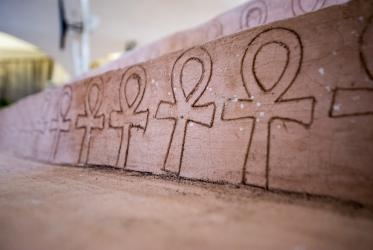Increasingly, the unity of the church is threatened by different positions on moral issues. In response to this, the Faith and Order Commission of the World Council of Churches (WCC) continues to study how churches arrive at the ethical decisions they make.
Between 2007 and 2013, the commission undertook an initial study, published as “Moral Discernment in the Churches: A Study Document.”
In 2015, the commission followed up on the document by convening a study group to focus on moral discernment in the churches and authority. On 24-28 July, the study group met in Erfurt, Germany. Discussion was moderated by Prof. Vladimir Shmaliy from the Russian Orthodox Church and Prof. Myriam Wijlens from the Roman Catholic Church. Rev. Dr Dagmar Heller, an ordained minister from a United Church in Germany, serving on the staff of the WCC is responsible for the study on the side of the Faith and Order secretariat in Geneva.
Churches have difficulty talking with one voice on moral or ethical issues, noted Wijlens. “Moreover, some churches are confronted with such different responses to ethical topics that the unity in that church is endangered. Before Faith and Order can even begin helping churches to understand the current challenges, we felt it was necessary to analyse first how each church arrives at an ethical decision as well as to see what can be learned from similar challenges that occurred in the past.”
To help facilitate this learning, authors from diverse confessional traditions were invited to present an analysis of the decision-making process and those who are involved in it in their own church. The study group discussed nine papers. Participants reflected how striking it was to see that churches with rather different structures might come up with similar official decisions related to moral issues.
Furthermore, the study group analysed several examples of past cases in which churches changed their view on a specific moral issue. The study group asked: What caused the change and how did the church arrive at a different view? What happened as the process of change took place? Examples discussed included apartheid in South Africa, slavery in the USA, religious freedom and human rights.
The study group will present its results and recommendations for further study at the next meeting of Faith and Order Commission in June 2017 in South Africa.
The WCC or its Faith and Order Commission cannot tell any church the “right” position with regard to a moral or theological issue, explained Heller. “What we want to do at this moment – and this is a very modest aim - is to help churches understand each other better and, therefore, respect each other’s positions. Only this approach can finally lead the churches in a next step to sit together and try together to find solutions for the problems of our modern world, which are not immediately or directly answered in the Bible or in the texts of the church fathers and mothers.“






